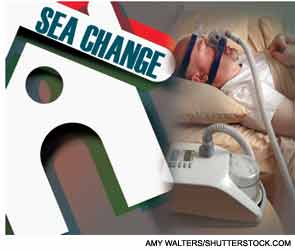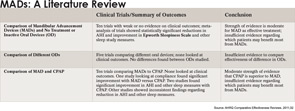Recent research shows that a person’s chronotype can influence a patient’s reaction to and use of continuous positive airway pressure (CPAP) therapy.


Recent research shows that a person’s chronotype can influence a patient’s reaction to and use of continuous positive airway pressure (CPAP) therapy.

The Food and Drug Administration (FDA) recently sent a safety communication regarding the Class I recall of certain Philips Respironics CPAP and BiPAP masks.

Obstructive sleep apnea patients are likely to experience increased middle ear pressure from using a CPAP machine.


Oral appliances may work better than CPAP for some patients

Experts agree that continuous positive airway pressure (CPAP) is the gold standard for management of obstructive sleep apnea.

When it comes to performing surgery for obstructive sleep apnea (OSA), there are a variety of procedures that can be done, but otolaryngologists sometimes have personal preferences, and preferences can affect everything from how diagnoses are made to the type of surgery performed, often with similar end results.

Continuous positive airway pressure (CPAP) is the standard first-line approach for moderate to severe obstructive sleep apnea.